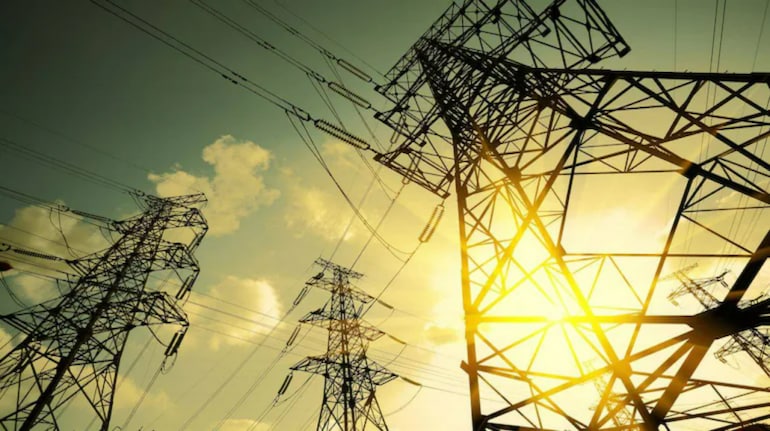



The Union government has shot a letter to the Central Electricity Regulatory Commission (CERC) asking it to consult the Ministry of Power before issuing any regulations henceforth.
Asking the power regulator to function in a “transparent” manner, the government in its letter said that CERC has been issuing regulations on critical issues in the recent past, many of which “necessitated” the Power Ministry’s intervention after feedback from industry stakeholders.
“The CERC is required to consult all stakeholders before framing (any) regulation and the government is the most important stakeholder. In view of this, CERC must consult the Ministry of Power in detail at the stage of formulating regulations. This will ensure that the regulations are consistent with the rules framed by the government and the government’s reforms agenda, and will also obviate the necessity of any subsequent policy direction the Government under Section 107. This is issued with the approval of the competent authority and is a policy direction under Section 107 of the Act,” read the letter dated May 8, issued by the Ministry of Power to CERC. Moneycontrol has a copy of the letter.
CERC is the primary regulator of India’s power sector. It is a statutory body functioning with quasi-judicial status under Section 76 of the Electricity Act, 2003. It is responsible for regulating tariffs of power generating companies (gencos), inter-state transmission charges, and inter-state trading of electricity in India. It also adjudicates disputes involving gencos or transmission licensees, apart from also having certain advisory functions.
To avoid frequent amendments in electricity regulations so as to ensure a stable and predictable system, the government asked the CERC to share all its proposed regulations with the Power Ministry before it is floated to the public and stakeholders for their objections and suggestions.
According to law, the power regulator acts autonomously, and the government can issue directional and policy inputs to the CERC whenever necessary. The Union government is empowered to do so under Section 107 of the Electricity Act.
Moneycontrol has sent mails to CERC Chairperson Jishnu Barua and all three members of the central power regulator seeking a comment on the matter. This report will be updated when a response is received from the concerned persons.
Officials from power utilities said such a letter by the government was “unheard of” before. “It signifies that there is a simmering discord between the CERC and the government,” said a senior functionary of a leading distribution company.
While there have been several regulations in the past where the government of India intervened under Section 107 to suggest regulatory changes, senior officials privy to the development told Moneycontrol that the practice became frequent in the recent past.
“One important trigger was the Deviation Settlement Mechanism (DSM) rules which the CERC issued in March 2022 for the wind energy industry. It led to a legal case and the government had to intervene by forming a sub-committee to resolve the problems in the regulations,” said a senior official privy to the development, requesting anonymity.
According to wind developers, the initial DSM regulations issued by the CERC drastically narrowed the band within which energy companies were exempted from penalties for deviating from the power supply schedules they would have given to the grid operator on the previous day. The developers said the existing technology still cannot predict wind flows accurately because of which it is not possible to always stick to the power supply schedules.
“The second important trigger was transmission charges for renewable energy. The government of India’s policy is to rather waive off inter-state transmission charges for renewable energy. But CERC issued the General Network Access (GNA) rules without keeping that in mind, which spread discontent among a lot of developers as they alleged that what the government had promised to them was being taken away. The Power Ministry had to intervene and resolve the issue. There are many policy issues where a lot of investors are concerned, therefore, formulating such regulations should be done under mutual understanding, cooperation and transparency,” said a second official privy to the development, requesting anonymity.
The government’s May 8 letter stated, “The Ministry of Power is responsible to the Parliament and the people for the growth and development of the power sector. In the recent past, the Ministry of Power came across a number of critical issues to address which it had to issue policy directions to CERC necessitating amendments in its regulations. Frequent changes in regulations are not in the interest of a predictable and stable regulatory framework in the country.”
It further requested the CERC to work in accordance with the Electricity Act, the rules framed by the Union government under the Act, the electricity policy, the National Electricity Plan, the Tariff Policy and policy direction the Union government may give under Section 107 of the Act.
Discover the latest Business News, Sensex, and Nifty updates. Obtain Personal Finance insights, tax queries, and expert opinions on Moneycontrol or download the Moneycontrol App to stay updated!
Find the best of Al News in one place, specially curated for you every weekend.
Stay on top of the latest tech trends and biggest startup news.